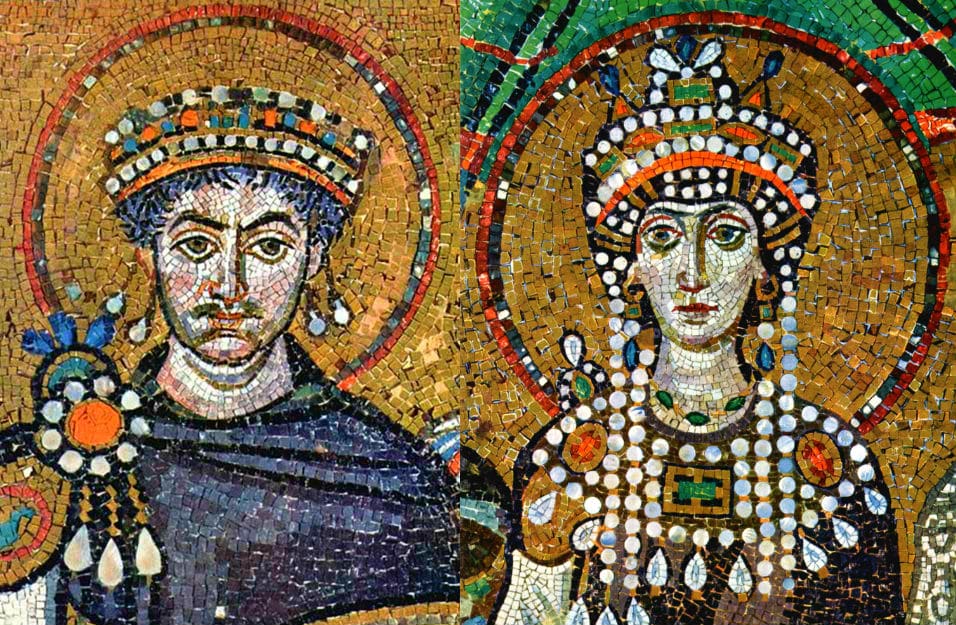
By the middle of the 6th century, the Emperor Justinian had spread his Byzantine Empire around the rim of the Mediterranean and throughout Europe, laying the groundwork for what he hoped would be a long-lived dynasty.
His dreams were shattered when disease-bearing mice from lower Egypt reached the harbor town of Pelusium in AD 540. From there, the devastating disease spread to Alexandria and, by ship, to Constantinople, Justinian’s capital, before surging throughout his empire.
By the time Justinian’s plague had run its course in AD 590, it had killed as many as 100 million people — half the population of Europe — brought trade to a near halt, destroyed an empire and, perhaps, brought on the Dark Ages.
UCLA Department of Epidemiology https://www.ph.ucla.edu/epi/bioter/anempiresepidemic.html
At the time of the plague, the Roman Empire (NOT the Byzantine Empire) was headed by the Emperor Justinian. He and his mother would later be acclaimed to be saints. Under Justinian a collection of both Roman law and church canons would be synthesized and published. This collection would be used for centuries and is still valuable as a reference work.
In other words, in some ways, this was a golden time for the Empire and the Church. In the West, some of the lost lands had been recovered, and the Arian Visigoths of Spain had converted back to orthodoxy. The authority of the emperor was recognized, at least in name, even in the West. From the time of Justinian I through the next two centuries, the Western Patriarch, the Pope of Rome, had to be approved by the Emperor. In fact, several were even appointed directly by the Emperor.
And, yet, a plague broke out during this golden time. Had a plague not broken out, it is quite possible that the Roman Empire would have regained even more of the western lands and that perhaps even Islam would have been able to be more forcefully rejected. The plague ended all this.
I bring this up to caution us about how we speak concerning the relationship between faith and pandemics. Our history teaches us that God does indeed allow pandemics to sweep through even that Christian empire of yore. We need to be cautious in our speaking not to inadvertently give the impression that if we have enough faith the pandemic will stop. Neither should we quote with facility the verse that if we pray God will forgive as though that will also stop the pandemic.
Let me point out that we had a saint on the throne in Constantinople, yet the plague broke out in all its fury and did not stop until the Empire was semi-destroyed. The history of that time shows that there was indeed much repentance and prayer. Yet, if such saints and such a Christian Empire were subject to the principles of epidemiology without an exemption from God then we need to be cautious so that we do not imply that we will somehow be surely exempt if we take certain actions.
I am cautioning us to not try to lock God into a certain set of behaviors. We do not know why God allowed such a fierce pandemic to sweep through the Empire. Science does give us answers as to why it propagated but does not give us answers about ultimate reasons. We, today, also do not have answers about ultimate reasons thus we should not answer for God during these times other than to console and to pastor. We do know that science has better medical answers than back then. We should not oppose those answers lightly.
So, let me repeat, let us be cautious in our speech and in our statements concerning God and concerning science.



Leave a Reply